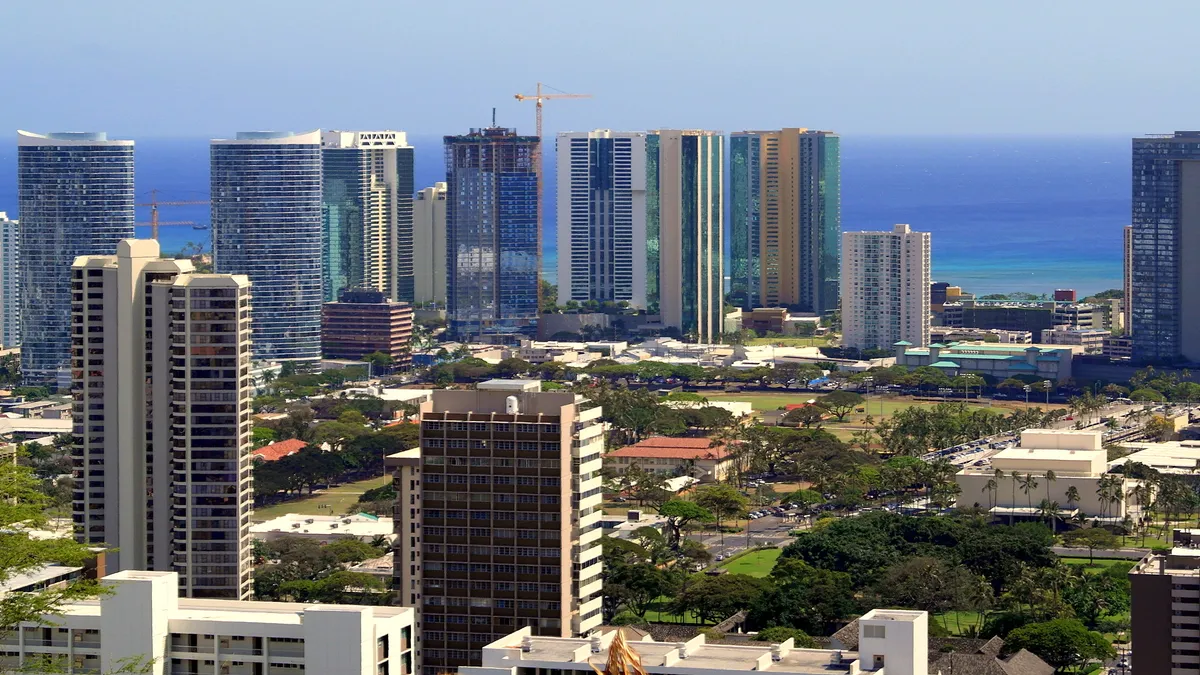Dive Brief:
- A report from the City Auditor of Honolulu said the city could have saved $7 million if it had expended fewer resources on recycling and sent more material to H-POWER, the city-owned waste-to-energy facility operated by Covanta. As reported by Honolulu Civil Beat, and indicated in the report, the value of recyclable materials has decreased while processing costs have increased.
- Under the current contract and law, Honolulu pays a penalty if it does not deliver a certain tonnage of waste to the facility each year. For failing to deliver enough tonnage to H-POWER between 2013-2016, the city had to pay penalties totaling $6.2 million.
- The audit recommends changing existing laws so that more material can be sent to H-POWER and modifying or canceling contracts that guarantee certain tonnages of waste or revenues from electricity to contractors, among others. In responding to the audit, the Honolulu Department of Environmental Services concurred with nine of the 10 recommendations. The department "generally" concurred with the recommendation to cancel or modify contracts.
Dive Insight:
Hawaii's geographic isolation and limited space make sending material to landfills more expensive. Recycling, too, is expensive, because of the high cost of shipping material to and from the islands. Honolulu, the state's largest and most populous city, will have to continue to think carefully about how it manages solid waste, especially considering the uncertain future of the recycling market.
Hawaii County and other jurisdictions in the state are moving forward with bans on certain materials, like expanded polystyrene to help mitigate issues with waste and litter. Considering the high cost of recycling EPS and the high costs that Honolulu incurred from recycling, according to the audit, a ban on EPS may be the smartest move for the region.
As Hawaii continues to work on waste-to-energy projects, the islands may find themselves at the center of a larger debate in the waste industry: Can waste strategies claim "zero waste" or high recycling rates if that includes WTE? While some in the waste industry favor WTE as a way to keep material out of landfills and generate revenue from electricity, others — including some policymakers — reject WTE as a source of clean energy. While Honolulu's government may concur with the auditor that the region should combust more material, it is yet to be seen if the general population agrees.











